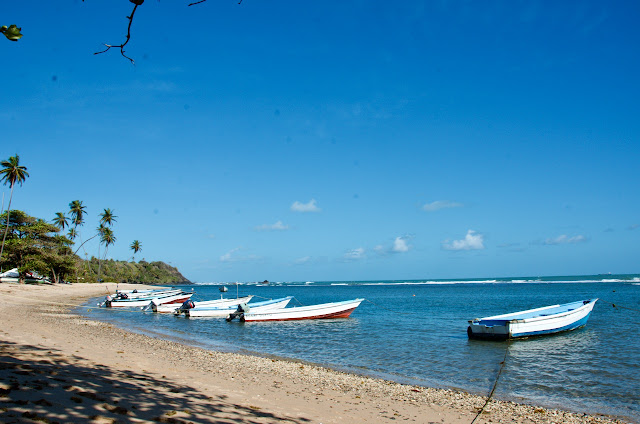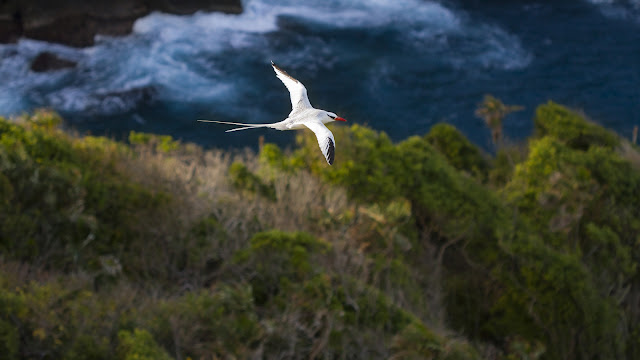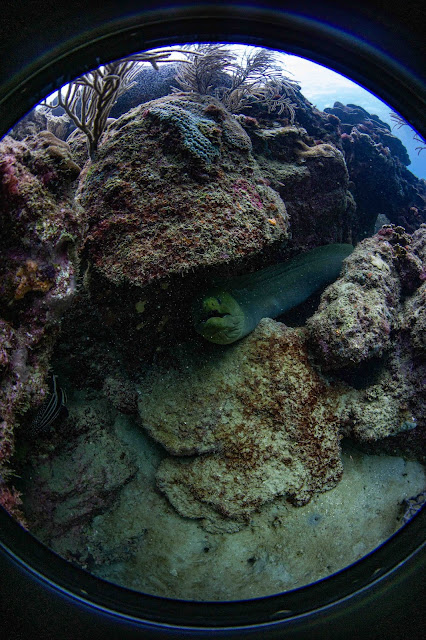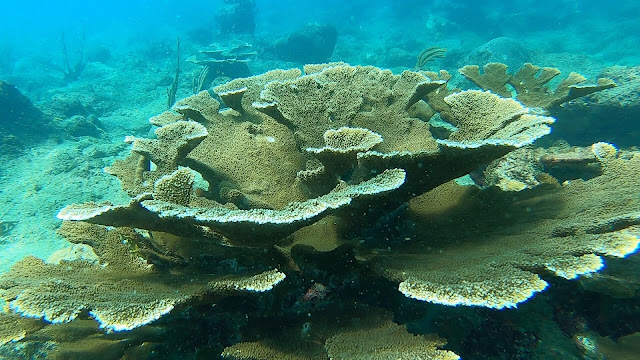Beaches of Tobago and Trinidad
Beyond the iconic beauty that surrounds our islands, beaches exert an irresistible power over our bodies and minds. Dr Anjani Ganase presents some of our best loved beaches.
The coastline of Trinidad and Tobago extends some 704 km punctuated by over 200 beaches. We have a beach for any mood, or choice of adventure. Along the north coast of Trinidad there are over 40 beaches. Many are small sandy coves in the shadow of rocky cliffs. For those interested in a sea bath at the end of the hike, these beaches are for you. Check out the hike to Paria beach and waterfalls - the broad white sand beach will welcome any weary hikers, willing to take the plunge into the water. Some of the most hidden beaches are found along the north coast. Have you heard of 100 steps, Yara beach or Paragrant beach?
 |
| Man-o-War Bay, Charlotteville, photo by Anjani Ganase |
Tobago’s coastline is indented and scored with about 80 beaches. Every village has their own beach for fishing or recreation; and most beaches are connected to a coral reef that can be explored by snorkeling or free diving.
 |
| Kilgwyn Bay, Tobago, photo by Anjani Ganase |
On Trinidad, surfers often seek out the northern or eastern beaches. For very long walks on the beach, the east coast provides kilometres of wide sandy shores. The longest beach in TT is Manzanilla beach, which is 23 kms long. Long walks or running barefoot on the sand are excellent to build and tone the muscles in the feet. It is also the best rated for beach cricket especially at low tide.
Popular weekend beaches are Maracas Bay and Pigeon Point, known for fetes and liming, but these familiar bays are perfect for fitness and exercise. Maracas Bay is home to the annual cross harbour swim. Swimmers often come to practice in the early morning hours in the lead up to the event. At Pigeon Point, you can get your cardio on by renting a kayak. When the wind is up at the turn of the year, in December and January, try wind surfing or stand-up paddling or kite sailing across the Bon Accord Lagoon.
 |
| Pigeon Point, Tobago, photo by Anjani Ganase |
Lessons on beaches
It is encouraging that more and more island children are learning to swim: community swimming pools have been installed in many urban centres. At the beaches, children should be encouraged to explore the doorway to the ocean. Look for the most unusual shells or for crustaceans entangled in seaweed. At certain times of year, we may find jellyfish and other odd ocean critters washed up on our beaches. It is a process of natural education for island people that teaches ecology and research techniques, conservation, and respect. Here we learn our first lessons of safety, how to swim out of a rip current, observe signs of a tsunami and avoid sitting under a coconut tree!
 |
| Paria Bay on Trinidad's north coast, photo by Anjani Ganase |
 |
| Grand Anse, Point Radix, between Manzanilla and Mayaro, photo by Anjani Ganase |
Benefits of being by the beach
All life emerged in from the sea; we are 60% water; and we seem to have a natural attraction to water. The health benefits are many: from the absorption of vitamin D to natural beauty treatments for your skin; the sea air, salty water and sunlight help to boost your immune system. Spending an hour or two watching the waves roll in is an instant stress reliever. Your mind clears and you gain perspective. You always sleep better after a day at the beach. Doctors have prescribed seaside vacations for centuries, and for all these excellent reasons.
 |
| Tompire Beach, photo by Anjani Ganase |
 |
| Salybia Bay, Toco, photo by Nicholas Marsan |
 |
| Castara Bay, photo by Anjani Ganase |
Beached
Let us treasure our beaches and leave the shores without trash and disturbance. Remember we share the beaches with wildlife. Depending on the time of the year (March to August), you may encounter nesting leatherback turtles along the northeast beaches of Trinidad and the Caribbean coasts of Tobago. Leave no trash and avoid driving on the beach sand. Both activities impact on nesting marine turtles. Hatchlings and nesting mothers often get entangled in the garbage and a car can compact the sand crushing the nests below. Experiences on beaches live in memories and are the basis of life lessons, caring for nature, and provide inspiration for art, literature and innovative thinking.
Most of all, our lives on the threshold of the ocean transforms our perspective about what it means to be island people sharing and caring for a world that is mostly ocean.
 |
| Grande Riviere Beach is an important nesting site for leatherback turtle, photo by Anjani Ganase |
References:
http://www.iczm.gov.tt/2019/05/08/what-is-a-coastal-zone/


